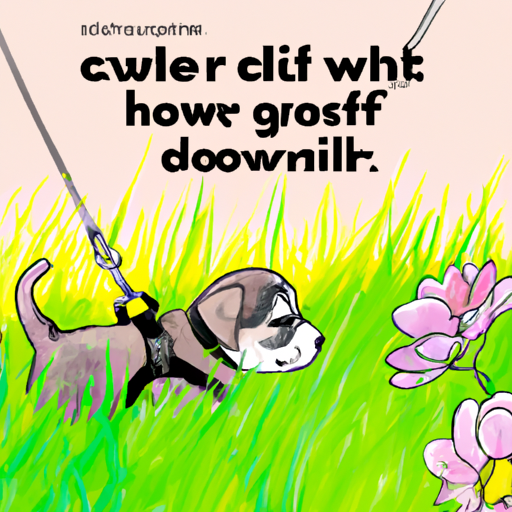As a caregiver to a new litter of puppies, you may be wondering when it’s safe for your little ones to start exploring the great outdoors. It’s an important question and requires careful consideration. This guide will walk you through the do’s and don’ts, and answer your most pressing queries around this topic.
The Importance of Safety
Your furry friends might be eager to explore, but safety should always be your number one priority. A 4-week-old puppy’s immune system is still developing, and they are more susceptible to diseases that can be picked up outside. Until they are fully vaccinated (usually at around 16 weeks), it’s best to restrict their outdoor activities.
Understanding Vaccinations
Puppies, like human babies, have a series of vaccinations they need to complete before they can safely interact with others and explore the outside world. Here are their typical vaccination schedules:
| Age | Vaccination |
|---|---|
| 6-8 weeks | Distemper, Parvovirus |
| 10-12 weeks | DHPP (Distemper, Hepatitis, Parvovirus, Parainfluenza) |
| 16-18 weeks | DHPP, Rabies |
Remember, these are just general timelines and your vet may adjust them based on your puppy’s health condition and the prevalent diseases in your area.
The Right Time to Socialize
Socializing your puppies is crucial for their development. While it’s risky to let them outside too soon, you can still introduce them to new environments and experiences in safe ways. Starting from the fifth week, you can gradually introduce them to new people, sounds, and experiences, but within the confines of your home.
Potty Training
One of the most pressing reasons to take your puppies outside is potty training. Ideally, potty training begins when the puppies are around 4-5 weeks old. However, since it’s risky to take them outside, use puppy pads or a designated indoor spot for this purpose. Once fully vaccinated, you can start transitioning them to go outside.
Outdoor Playtime
While it’s not advisable for your 4-week old puppies to play outside, you can begin to introduce them to the concept of play. Start with short, supervised sessions using age-appropriate toys. Remember, their motor skills are still developing, so keep activities gentle and within their comfort zone.
Exercise and Nutrition
Just like humans, puppies need a balanced diet and exercise routine for healthy growth. But remember, their tiny bodies are still developing, so overdoing it can cause harm. Always consult with your vet about the appropriate amount and type of food, as well as safe ways to keep your puppies active.
When to Consult a Vet
If you notice any signs of illness in your puppies — such as loss of appetite, lethargy, or unusual behavior — don’t hesitate to consult your vet. It’s better to be safe than sorry when it comes to the wellbeing of your little ones.
Frequently Asked Questions
1. Can I let my 4-week-old puppy interact with my older, vaccinated dog?
While it’s essential for your puppy to socialize, it should only be done under careful supervision. Your older dog can be a good role model, but make sure they have a recent health check and are up-to-date with their vaccinations.
2. How can I stimulate my 4-week-old puppy?
You can stimulate your puppy by introducing them to new sounds, smells, and textures. Try using soft toys, playing gentle music, or letting them sniff different objects.
3. Is it safe to take my 4-week-old puppy for car rides?
Short car rides can be a part of your puppy’s socialization process, but ensure they’re secure in a carrier or a dog seat belt to prevent any injuries.
4. When can I start training my puppy?
Simple training like getting your puppy used to their name or understanding simple commands like ‘sit’ can start from 8 weeks. Remember, patience and positive reinforcement are key in this process.
In conclusion, while your 4-week-old puppies may be keen to explore outside, it’s best to wait until they are fully vaccinated to ensure their safety. In the meantime, there are plenty of ways to keep them stimulated and happy indoors. Always consult with a vet if you have any concerns about your puppies’ health or development.



